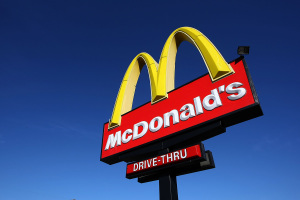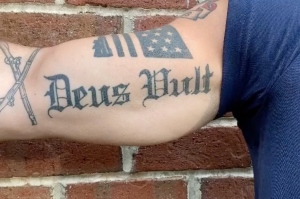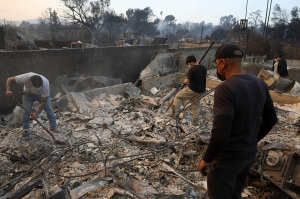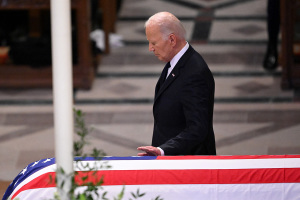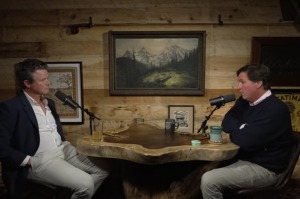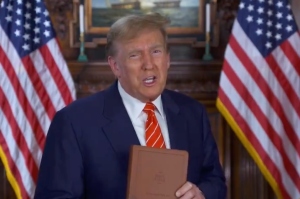Terror Sect Suspected as Fuel Tankers Explode in Nigeria
Two fuel trucks exploded in the Nigerian capital of Abuja during rush-hour traffic Wednesday, following threats of attacks from terror sect Boko Haram.
Authorities cited a possible electrical problem in one of the tankers, but did not suspect sabotage. The explosion comes after Nigeria rejected a U.S. Embassy warning that Boko Haram was planning to attack targets in Abuja.
Police say both tankers exploded near gas stations but were separate incidents occurring in separate neighborhoods.
Passers-by, cognizant of the rising terror threat, fled in terror after hearing large explosions. Witnesses said that roadblocks were erected and plumes of smoke covered the city.
The explosions came a day after President Goodluck Johnathan said the country is safe to visit, citing a one-day trip to the contentious northeastern region of the country by French Foreign Minister Alain Juppe.
Johnathan, who is embroiled in a fuel subsidy case that could raise the country’s inflation rate by 13 percent, claimed last week the Boko Haram is a “temporary problem.”
Abuja residents had been on edge after recent Boko Haram threats, and the U.S. Embassy warning. Despite Johnathan’s downplaying of the situation, residents are increasingly likely to believe Boko Haram will carry out attacks it plans – and that the government is doing the country no favors by not taking the terror sect seriously.
To date, Johnathan has sent three troops of soldiers to Yobe state, where attacks last week killed more than 150 people, including 120 Christians. A 24-hour curfew was issued, but was lifted after only eight hours. Two people were killed shortly thereafter. A police motorcade was bombed in the region on Tuesday.
Johnathan has asked for Christians to pray for Nigeria.
Nigeria is Africa’s most populous country and considerably richer than countries in the region due to its expansive oil reserves. Its central government, however, is weak.
Boko Haram violence began last year. The terror sect has bombed a U.N. building, killed more than 500 people and conducted suicide bombings and assassinations.
The group, whose name translates to “western religion is sacrilege,” is fighting to implement Shariah – Islamic law – throughout Nigeria. The group has targeted Christians in the mostly-Muslim northern region of the country, as well as Muslims and government officials who disagree with the group’s fundamentalism.















